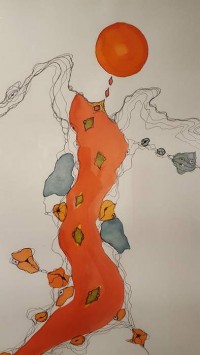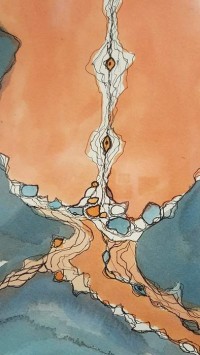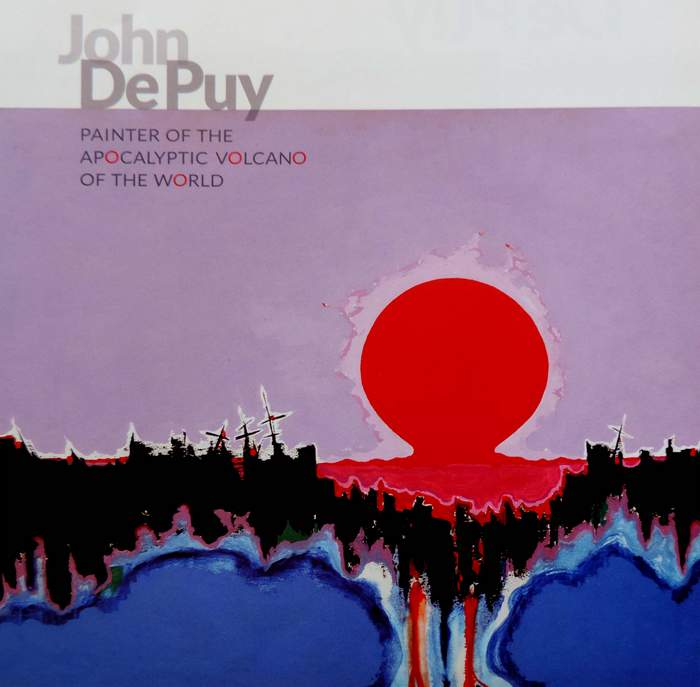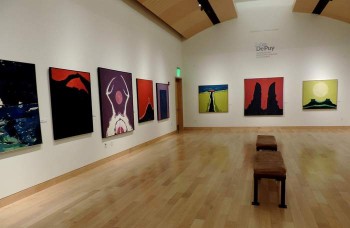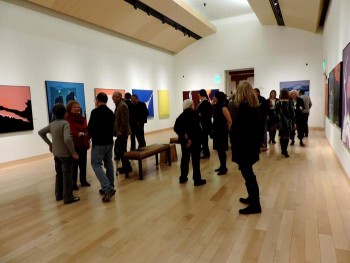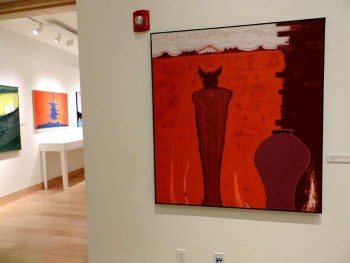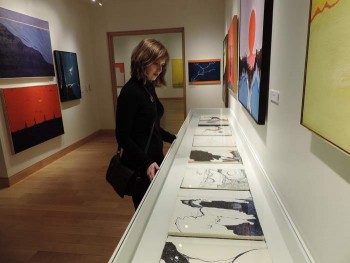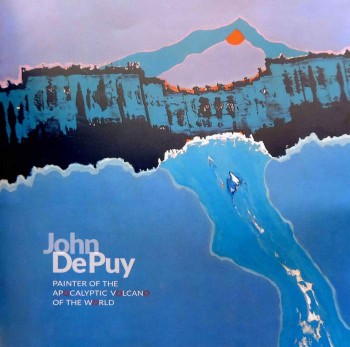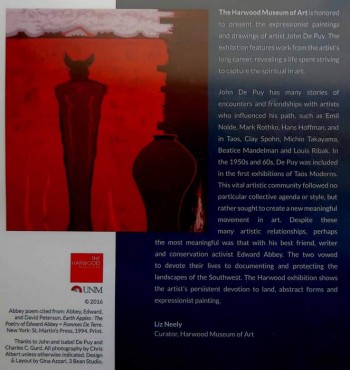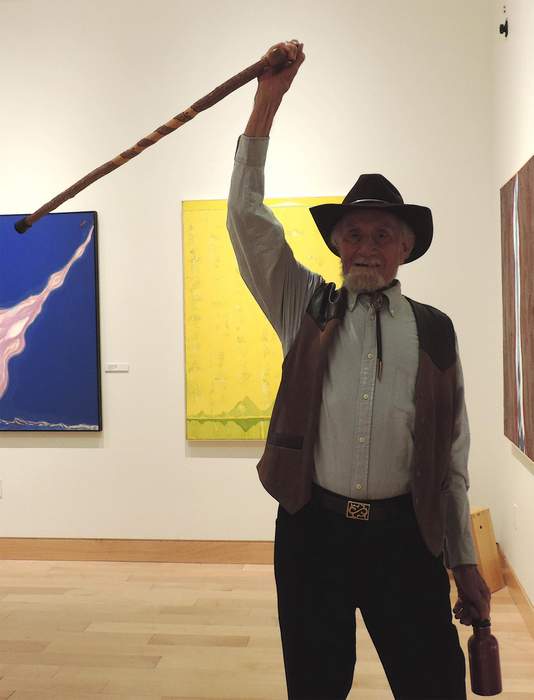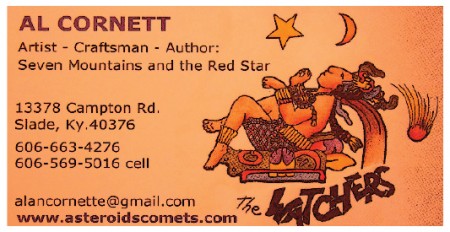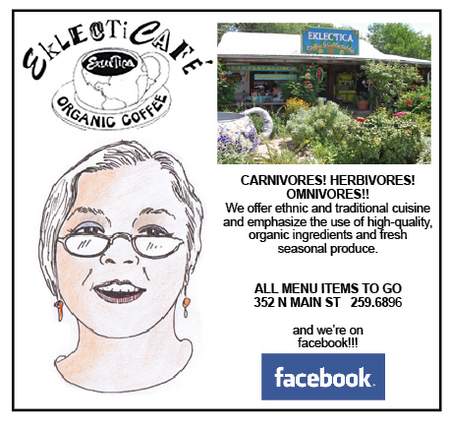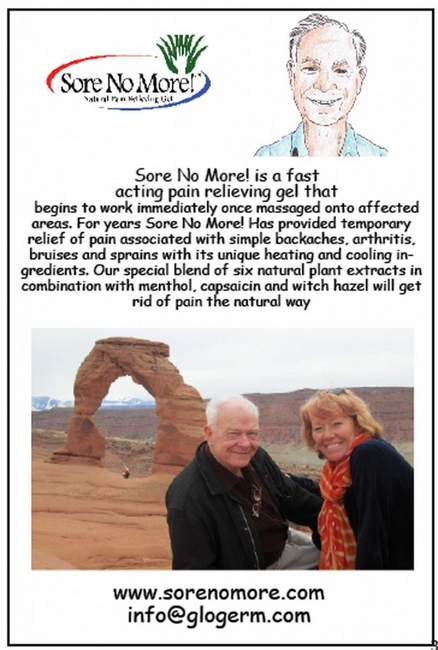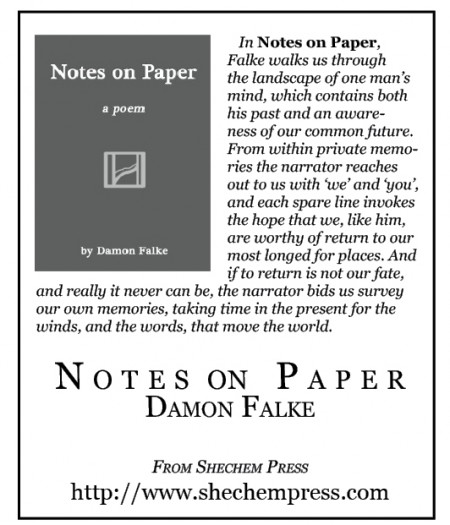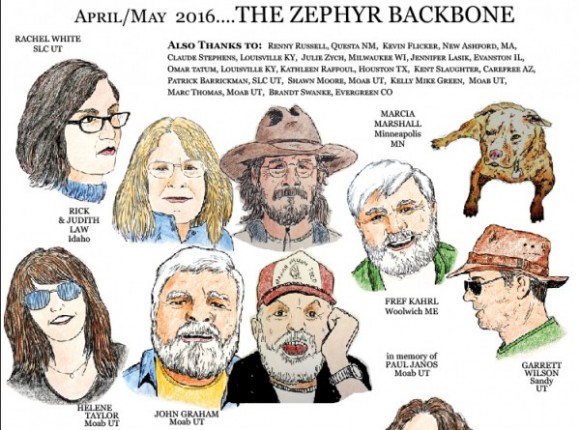Don’t miss this rare opportunity.
The Life Work of
JOHN DEPUY
is at the
HARWOOD MUSEUM
TAOS, NEW MEXICO
through
MAY 1, 2016
CLICK HERE for More Information
The Harwood Museum of Art is honored to present the expressionist paintings of drawings of artist John De Puy. The exhibition features work from the artist’s long career, revealing a life spent striving to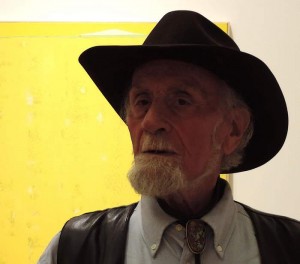 capture the spiritual in art.
capture the spiritual in art.
John De Puy has many stories of encounters and friendships with artists who influence his path, such as Emil Nolde, Mark Rothko, Hans Hoffman, and in Taos, Clay Spohn, Michio Takayama, Beatice Mandelman and Louis Ribak. In the 1950s and 60s, De Puy was included in the first exhibitions of Taos Moderns. The vital artistic community followed no particular collective agenda or style, but rather sought to create a new meaningful movement in art. Despite these many artistic relationships, perhaps the most meaningful was that with his best friend, writer and conservation activist Edward Abbey. The two vowed to devote their lives to documenting and protecting the landscapes of the Southwest. The Harwood exhibition shows the artist’s persistent devotion to land, abstract forms and expressionist painting.
–Liz Neely
Curator, Harwood Museum of Art
The high desert landscape of the Colorado Plateau has been the life-long inspiration for reclusive and mystic artist John De Puy. During his daily hikes, the landscape forms of arroyos, canyons, mesas, natural bridges, pinnacles and monoliths have become blended with his sub-conscious.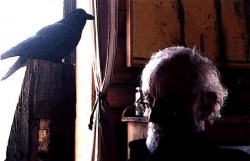
For over 60 years, John has ‘documented’ the unseen underlying reality of this landscape in thousands of pen and ink drawings—some eventually to be used to prepare watercolors and then paintings. Hiking in a kind of continuous walking meditation, he has relied on his Zen training, which stresses a ‘mindfulness before the subject matter and disengagement from active thinking,’ and which permits access to a spiritual essence.
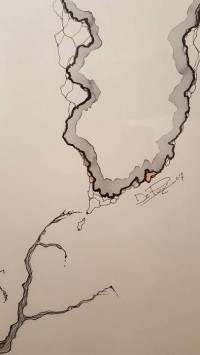 John has traveled extensively—sketching the landscapes of Morocco, Crete and Rhodes, the Sea of Cortez, the gulf coast islands of British Columbia and Washington State. Along his path, John had the extreme good fortune to have met writer and conservationist Edward Abbey. Abbey and John were kindred souls, partners-in-crime, fellow rabble-rousers and life-long friends who shared a deep love for the land and a determination to not only bear witness to its beauty, but to also try to protect it.
John has traveled extensively—sketching the landscapes of Morocco, Crete and Rhodes, the Sea of Cortez, the gulf coast islands of British Columbia and Washington State. Along his path, John had the extreme good fortune to have met writer and conservationist Edward Abbey. Abbey and John were kindred souls, partners-in-crime, fellow rabble-rousers and life-long friends who shared a deep love for the land and a determination to not only bear witness to its beauty, but to also try to protect it.
Describing his friend’s work, Abbey has written: “De Puy’s landscape is not the landscape we see with routine eyes. He paints a hallucinated, magical, and sometimes fearful world—not the one we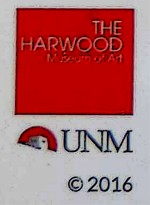 think we see, but the one he claims is really there. A world of terror as well as beauty—the terrible beauty that lies beyond the ordinary limits of human experience, that forms the basis of experience, the ground of being. His paintings have a liberating quality, they make a window in the wall of our modern techno-industrial workhouse—a window that leads the eye and the heart and the mind through the wall and far out into the freedom of the old and the original world and they take us back to where we came from long ago. They take us back to where we took the wrong fork in the road.
think we see, but the one he claims is really there. A world of terror as well as beauty—the terrible beauty that lies beyond the ordinary limits of human experience, that forms the basis of experience, the ground of being. His paintings have a liberating quality, they make a window in the wall of our modern techno-industrial workhouse—a window that leads the eye and the heart and the mind through the wall and far out into the freedom of the old and the original world and they take us back to where we came from long ago. They take us back to where we took the wrong fork in the road.
–Charles C. Gurd
Abbey source: Abbey, Edward. The Journey Home: Some Words in Defense of the American West. New York: Dutton, 1977. Print
To read the PDF version of this article, click here.
To comment, scroll to the bottom of the page.
Don’t forget the Zephyr ads! All links are hot!

